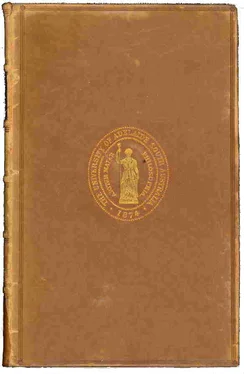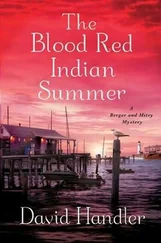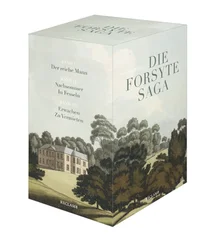Galsworthy, 1867-1933 - Indian Summer of a Forsyte
Здесь есть возможность читать онлайн «Galsworthy, 1867-1933 - Indian Summer of a Forsyte» весь текст электронной книги совершенно бесплатно (целиком полную версию без сокращений). В некоторых случаях можно слушать аудио, скачать через торрент в формате fb2 и присутствует краткое содержание. Жанр: Старинная литература, на английском языке. Описание произведения, (предисловие) а так же отзывы посетителей доступны на портале библиотеки ЛибКат.
- Название:Indian Summer of a Forsyte
- Автор:
- Жанр:
- Год:неизвестен
- ISBN:нет данных
- Рейтинг книги:5 / 5. Голосов: 1
-
Избранное:Добавить в избранное
- Отзывы:
-
Ваша оценка:
- 100
- 1
- 2
- 3
- 4
- 5
Indian Summer of a Forsyte: краткое содержание, описание и аннотация
Предлагаем к чтению аннотацию, описание, краткое содержание или предисловие (зависит от того, что написал сам автор книги «Indian Summer of a Forsyte»). Если вы не нашли необходимую информацию о книге — напишите в комментариях, мы постараемся отыскать её.
Indian Summer of a Forsyte — читать онлайн бесплатно полную книгу (весь текст) целиком
Ниже представлен текст книги, разбитый по страницам. Система сохранения места последней прочитанной страницы, позволяет с удобством читать онлайн бесплатно книгу «Indian Summer of a Forsyte», без необходимости каждый раз заново искать на чём Вы остановились. Поставьте закладку, и сможете в любой момент перейти на страницу, на которой закончили чтение.
Интервал:
Закладка:
But Holly was asleep, and lay like a miniature Madonna, of that type which the old painters could not tell from Venus, when they had completed her. Her long dark lashes clung to her cheeks; on her face was perfect peace — her little arrangements were evidently all right again. And old Jolyon, in the twilight of the room, stood adoring her! It was so charming, solemn, and loving — that little face. He had more than his share of the blessed capacity of living again in the young. They were to him his future life — all of a future life that his fundamental pagan sanity perhaps admitted. There she was with everything before her, and his blood — some of it — in her tiny veins. There she was, his little companion, to be made as happy as ever he could make her, so that she knew nothing but love. His heart swelled, and he went out, stilling the sound of his patent-leather boots. In the corridor an eccentric notion attacked him: To think that children should come to that which Irene had told him she was helping! Women who were all, once, little things like this one sleeping there! ‘I must give her a cheque!’ he mused; ‘Can’t bear to think of them!’ They had never borne reflecting on, those poor outcasts; wounding too deeply the core of true refinement hidden under layers of conformity to the sense of property — wounding too grievously the deepest thing in him — a love of beauty which could give him, even now, a flutter of the heart, thinking of his evening in the society of a pretty woman. And he went downstairs, through the swinging doors, to the back regions. There, in the wine-cellar, was a hock worth at least two pounds a bottle, a Steinberg Cabinet, better than any Johannisberg that ever went down throat; a wine of perfect bouquet, sweet as a nectarine — nectar indeed! He got a bottle out, handling it like a baby, and holding it level to the light, to look. Enshrined in its coat of dust, that mellow coloured, slender-necked bottle gave him deep pleasure. Three years to settle down again since the move from Town — ought to be in prime condition! Thirty-five years ago he had bought it — thank God he had kept his palate, and earned the right to drink it. She would appreciate this; not a spice of acidity in a dozen. He wiped the bottle, drew the cork with his own hands, put his nose down, inhaled its perfume, and went back to the music room.
Irene was standing by the piano; she had taken off her hat and a lace scarf she had been wearing, so that her gold-coloured hair was visible, and the pallor of her neck. In her grey frock she made a pretty picture for old Jolyon, against the rosewood of the piano.
He gave her his arm, and solemnly they went. The room, which had been designed to enable twenty-four people to dine in comfort, held now but a little round table. In his present solitude the big dining-table oppressed old Jolyon; he had caused it to be removed till his son came back. Here in the company of two really good copies of Raphael Madonnas he was wont to dine alone. It was the only disconsolate hour of his day, this summer weather. He had never been a large eater, like that great chap Swithin, or Sylvanus Heythorp, or Anthony Thornworthy, those cronies of past times; and to dine alone, overlooked by the Madonnas, was to him but a sorrowful occupation, which he got through quickly, that he might come to the more spiritual enjoyment of his coffee and cigar. But this evening was a different matter! His eyes twinkled at her across the little table and he spoke of Italy and Switzerland, telling her stories of his travels there, and other experiences which he could no longer recount to his son and grand-daughter because they knew them. This fresh audience was precious to him; he had never become one of those old men who ramble round and round the fields of reminiscence. Himself quickly fatigued by the insensitive, he instinctively avoided fatiguing others, and his natural flirtatiousness towards beauty guarded him specially in his relations with a woman. He would have liked to draw her out, but though she murmured and smiled and seemed to be enjoying what he told her, he remained conscious of that mysterious remoteness which constituted half her fascination. He could not bear women who threw their shoulders and eyes at you, and chattered away; or hard-mouthed women who laid down the law and knew more than you did. There was only one quality in a woman that appealed to him — charm; and the quieter it was, the more he liked it. And this one had charm, shadowy as afternoon sunlight on those Italian hills and valleys he had loved. The feeling, too, that she was, as it were, apart, cloistered, made her seem nearer to himself, a strangely desirable companion. When a man is very old and quite out of the running, he loves to feel secure from the rivalries of youth, for he would still be first in the heart of beauty. And he drank his hock, and watched her lips, and felt nearly young. But the dog Balthasar lay watching her lips too, and despising in his heart the interruptions of their talk, and the tilting of those greenish glasses full of a golden fluid which was distasteful to him.
The light was just failing when they went back into the music-room. And, cigar in mouth, old Jolyon said:
“Play me some Chopin.”
By the cigars they smoke, and the composers they love, ye shall know the texture of men’s souls. Old Jolyon could not bear a strong cigar or Wagner’s music. He loved Beethoven and Mozart, Handel and Gluck, and Schumann, and, for some occult reason, the operas of Meyerbeer; but of late years he had been seduced by Chopin, just as in painting he had succumbed to Botticelli. In yielding to these tastes he had been conscious of divergence from the standard of the Golden Age. Their poetry was not that of Milton and Byron and Tennyson; of Raphael and Titian; Mozart and Beethoven. It was, as it were, behind a veil; their poetry hit no one in the face, but slipped its fingers under the ribs and turned and twisted, and melted up the heart. And, never certain that this was healthy, he did not care a rap so long as he could see the pictures of the one or hear the music of the other.
Irene sat down at the piano under the electric lamp festooned with pearl-grey, and old Jolyon, in an armchair, whence he could see her, crossed his legs and drew slowly at his cigar. She sat a few moments with her hands on the keys, evidently searching her mind for what to give him. Then she began and within old Jolyon there arose a sorrowful pleasure, not quite like anything else in the world. He fell slowly into a trance, interrupted only by the movements of taking the cigar out of his mouth at long intervals, and replacing it. She was there, and the hock within him, and the scent of tobacco; but there, too, was a world of sunshine lingering into moonlight, and pools with storks upon them, and bluish trees above, glowing with blurs of wine-red roses, and fields of lavender where milk-white cows were grazing, and a woman all shadowy, with dark eyes and a white neck, smiled, holding out her arms; and through air which was like music a star dropped and was caught on a cow’s horn. He opened his eyes. Beautiful piece; she played well — the touch of an angel! And he closed them again. He felt miraculously sad and happy, as one does, standing under a lime-tree in full honey flower. Not live one’s own life again, but just stand there and bask in the smile of a woman’s eyes, and enjoy the bouquet! And he jerked his hand; the dog Balthasar had reached up and licked it.
“Beautiful!” He said: “Go on — more Chopin!”
She began to play again. This time the resemblance between her and ‘Chopin’ struck him. The swaying he had noticed in her walk was in her playing too, and the Nocturne she had chosen and the soft darkness of her eyes, the light on her hair, as of moonlight from a golden moon. Seductive, yes; but nothing of Delilah in her or in that music. A long blue spiral from his cigar ascended and dispersed. ‘So we go out!’ he thought. ‘No more beauty! Nothing?’
Читать дальшеИнтервал:
Закладка:
Похожие книги на «Indian Summer of a Forsyte»
Представляем Вашему вниманию похожие книги на «Indian Summer of a Forsyte» списком для выбора. Мы отобрали схожую по названию и смыслу литературу в надежде предоставить читателям больше вариантов отыскать новые, интересные, ещё непрочитанные произведения.
Обсуждение, отзывы о книге «Indian Summer of a Forsyte» и просто собственные мнения читателей. Оставьте ваши комментарии, напишите, что Вы думаете о произведении, его смысле или главных героях. Укажите что конкретно понравилось, а что нет, и почему Вы так считаете.


![О Генри - Бабье лето Джонсона Сухого Лога [The Indian Summer of Dry Valley, Johnson]](/books/407344/o-genri-babe-leto-dzhonsona-suhogo-loga-the-india-thumb.webp)









